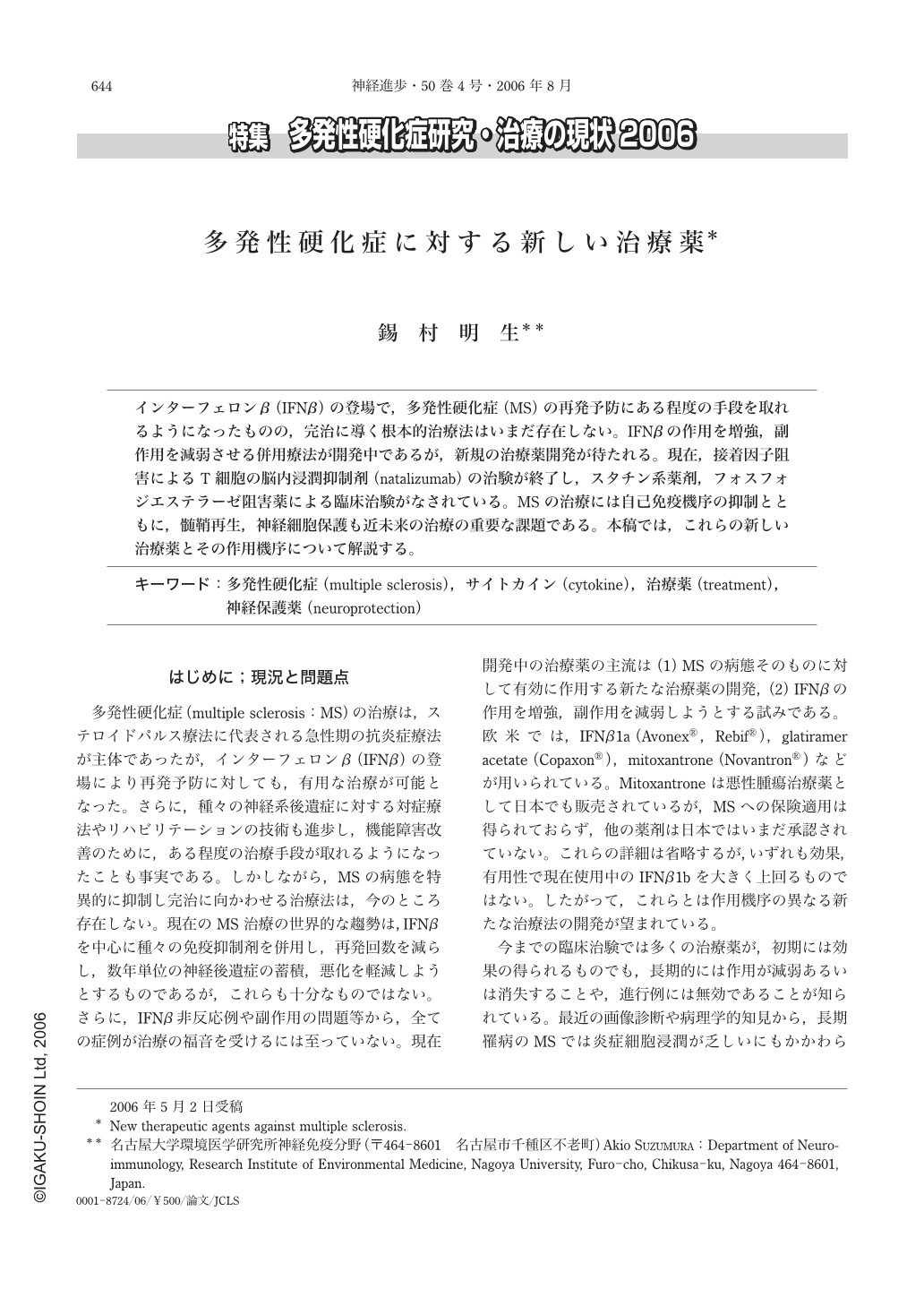Japanese
English
- 有料閲覧
- Abstract 文献概要
- 1ページ目 Look Inside
- 参考文献 Reference
インターフェロンβ(IFNβ)の登場で,多発性硬化症(MS)の再発予防にある程度の手段を取れるようになったものの,完治に導く根本的治療法はいまだ存在しない。IFNβの作用を増強,副作用を減弱させる併用療法が開発中であるが,新規の治療薬開発が待たれる。現在,接着因子阻害によるT細胞の脳内浸潤抑制剤(natalizumab)の治験が終了し,スタチン系薬剤,フォスフォジエステラーゼ阻害薬による臨床治験がなされている。MSの治療には自己免疫機序の抑制とともに,髄鞘再生,神経細胞保護も近未来の治療の重要な課題である。本稿では,これらの新しい治療薬とその作用機序について解説する。
Interferon-β(IFNβ)is now widely used for the treatment of multiple sclerosis(MS). However, because of the side-effects and poor-responsiveness, not all the patients with MS take advantage with IFNβ treatment. In addition, IFNβ dose not suppress all the pathological processes of MS. Thus, we still need the new therapeutic strategy. To suppress pathophysiology of MS, we have to develop the novel ways to protect neurons and to induce remyelination in addition to the immunosuppression. Statins and phosphodiesterase inhibitors are now examined for this purpose. In this review, I discuss the mechanisms of MS and possible candidates for future treatment of MS.

Copyright © 2006, Igaku-Shoin Ltd. All rights reserved.


